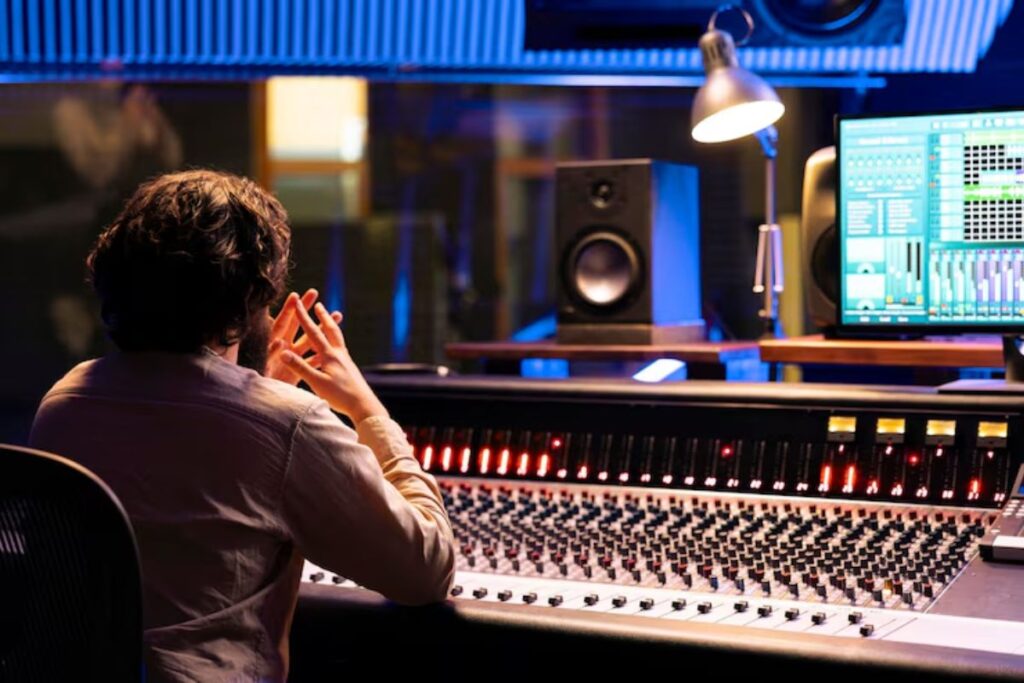Music is all around us—on streaming apps, in videos, games, ads, and even as background tunes during our daily routines. But how is it all created? The answer lies in music production, a fascinating blend of creativity and technology. Whether you’re a curious beginner or someone thinking about exploring a new passion, learning the basics can help you understand how songs come to life. Many people today are even enrolling in music production courses in Bangalore to get hands-on experience and boost their creative potential.
What Is Music Production?
Music production is the process of turning a musical idea into a finished, listenable track. It involves several stages—from songwriting and arranging to recording, editing, mixing, and mastering. A music producer plays a central role in guiding the direction of a song, overseeing the technical aspects, and shaping the overall sound.
You don’t need to own a studio to start producing music. With just a computer and basic tools, you can begin experimenting and learning from anywhere.
The Core Stages of Music Production
Let’s break it down into five beginner-friendly steps:
1. Songwriting and Composition
This is where creativity begins. A melody, a beat, or a line of lyrics can spark a full song. Writing music can be done with real instruments or digital tools such as virtual pianos, synthesizers, and drum machines. At this stage, you’re building the basic structure—verses, choruses, and bridges.
2. Arrangement
Arranging is about organizing your song. It includes deciding when different instruments come in, how long a verse or chorus should be, and creating build-ups or transitions. A well-arranged song keeps the listener engaged from start to finish.
3. Recording
This step involves capturing the actual sound—vocals, instruments, or digitally generated elements. Beginners can start recording at home with a microphone, an audio interface, and a basic DAW (Digital Audio Workstation) on their computer.
4. Editing and Mixing
Editing ensures your track is clean and polished. You’ll fix timing, correct mistakes, and organize your takes. Mixing comes next—this is where you adjust volumes, add effects, pan instruments left or right, and make sure all the sounds blend well together.
5. Mastering
The final step is mastering, which gives your track a professional sound. It enhances overall loudness, adjusts final EQ and compression, and prepares the song for streaming or distribution.
Tools to Help You Get Started
You don’t need expensive gear. These simple tools can kickstart your journey:
- A computer or laptop
- DAW software (free or affordable versions available)
- Studio headphones
- MIDI keyboard (optional but helpful)
- Microphone and audio interface for recording
With these, you can build your first track right from home.
Learning and Improving Your Skills
Starting out can feel overwhelming, but there are many ways to learn. Practice regularly, study music structures, and create your own mini projects. Listening carefully to other songs will also help you improve your understanding of arrangement, mixing, and sound layering.
Those serious about taking things further often look into music production courses in Chennai to gain expert guidance and practical exposure. These courses can fast-track your learning and help you build a strong foundation.
Genres You Can Explore
Music production lets you explore any genre you like. Here are a few examples:
- Pop: Clean vocals, catchy hooks, and polished production
- Hip-Hop: Strong beats, loops, and creative sampling
- Electronic: Synth-driven, often with complex effects and transitions
- Rock: Live instrument recording, layered guitar riffs, powerful drums
- Lo-fi or Chill: Relaxed tempos, soft tones, and ambient effects
Trying out different genres helps you discover your style and push creative limits.
Tips for Beginners
Here are a few helpful reminders as you begin:
- Start small. Build short loops or 1-minute ideas before attempting full songs.
- Use reference tracks. Compare your work to songs you like to understand structure and quality.
- Keep practicing. Consistency leads to growth.
- Don’t worry about perfection. Learn from every mistake.
Remember, every professional producer started at the beginner level too.
Why Music Production Is Worth Exploring
Music production not only teaches you about music but also improves your creativity, attention to detail, and problem-solving skills. Whether you want to create your own songs, score for films, or even work behind the scenes, production skills open many doors.
It can also be a therapeutic hobby—something that relaxes you and helps you express emotions.
Conclusion: Take the First Step Today
Music production might sound technical at first, but once you understand the steps and tools, it becomes an exciting creative outlet. With just a few essentials, anyone can start producing music at home. Learn at your pace, experiment with sounds, and don’t hesitate to make mistakes—they are part of the journey.
Structured learning options and hands-on practice can offer valuable insights, practical experience, and confidence to grow.
Your musical journey begins when you take that first step. Start creating, stay consistent, and enjoy the process of making your own sound.
- Music Production Basics: A Simple and Clear Introduction for All
- Discover the basics of music production in simple steps. Learn how to create, record, and mix your own music—perfect for beginners and aspiring creators.
- Music Production Courses in Bangalore , Music Production Courses in Chennai
Related posts:
 Engineering Design Assignment Help: Making Complex Projects Easier for Students
Engineering Design Assignment Help: Making Complex Projects Easier for Students
 Turnitin Reports Made Easy with Political Science Solution’s Research Guide
Turnitin Reports Made Easy with Political Science Solution’s Research Guide
 How COVID-19 Changed The Classroom Tech Adoption in Pakistan
How COVID-19 Changed The Classroom Tech Adoption in Pakistan
 Best International schools in Kompally | Hyderabad – CMR Schools
Best International schools in Kompally | Hyderabad – CMR Schools
 Best NDA Coaching Institute Kanpur NDA Coaching Institute Kanpur -La Militaire Academy
Best NDA Coaching Institute Kanpur NDA Coaching Institute Kanpur -La Militaire Academy
 ICFM Stock Market Classes Offer Practical Trading Education, Real-Time Learning, Expert Mentorship
ICFM Stock Market Classes Offer Practical Trading Education, Real-Time Learning, Expert Mentorship
 ICFM stock market classes empower your future with proven strategies
ICFM stock market classes empower your future with proven strategies







